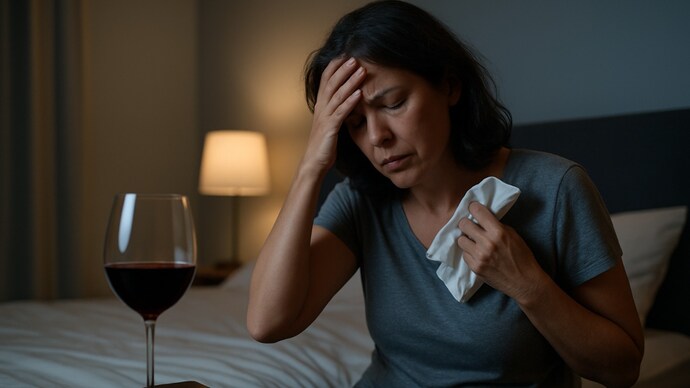Why siblings are becoming less common
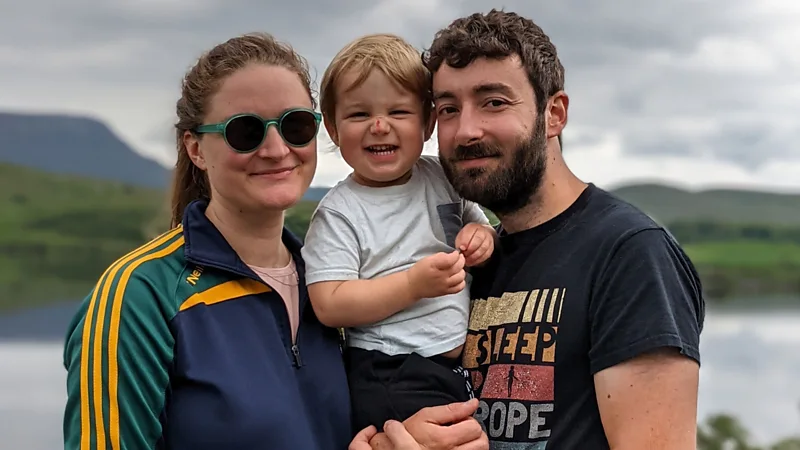
Among social and economic considerations, more parents are foregoing siblings, choosing to stop at one child.
When Jen Dalton got pregnant in 2018, she made a spreadsheet. Taking into account maternity leave, family-spacing health recommendations and even potential family holidays, she planned out when to have each of the four kids she thought she wanted. "I look at it once in a while and I giggle at how naïve I was," says Dalton, 31.
That’s because, just two months after her daughter's birth, she and her husband decided they were 'one and done'. Part of it was their struggle with sleep deprivation and mental health; Dalton dealt with a traumatic birth, postnatal depression (PND) and postpartum anxiety (PPA). But even when life became easier, the decision felt right.
It wasn't only that Ontario, Canada-based Dalton and her husband didn't want to risk her – and their family's – wellbeing by going through it all again. It was also that they knew there wasn't anything "wrong" with not "giving" their child a sibling. "I'm an only child, and I'm very happy," says Dalton. "I'm so close with my parents."
Then, in 2022, Dalton had a wobble. She and her husband moved into their "forever home". Close friends had a new-born, who reminded them of their daughter. She felt if she had PPD or PPA again, she'd have more tools to manage it. And social-media algorithms kept pushing content showcasing big, beautiful families. "It really made us think like, 'Yeah, we could do it again'," she says.
It's not surprising that Dalton started to question her decision. Even though, in many countries, only children are becoming the norm, pressure to have more than one remains. Stereotypes about only children being spoilt or lonely persist, despite consistent debunking. Parents say they feel pressure to have more kids from everyone from family members to perfect strangers. On social media, mothers post adorable moments of their broods with captions like, "This is your sign, give them the younger sibling" and "I never met a mama who regretted having that one more".
Even as deciding to be one-and-done becomes more common, this background noise means parents who make this choice often find themselves having to convince other people – and even themselves – that they've done the right thing.
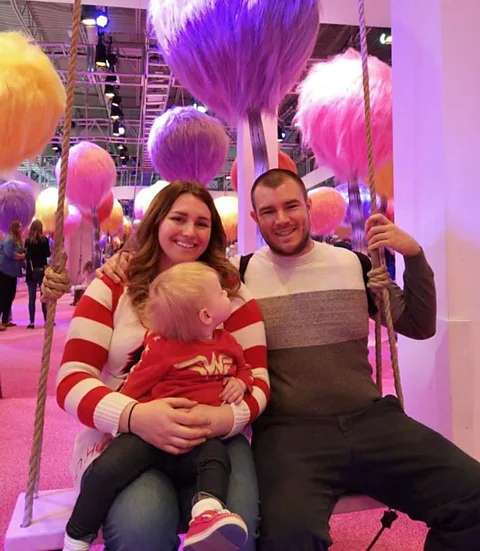
More common, but still judged
Particularly after the contraceptive revolution of the mid-20th Century, which gave many women some real control over fertility, the choice of how many children to have has been personal. But there have been clear social and cultural trends, too.
In many countries, those trends are shifting towards fewer kids. In the EU, the largest proportion of all families with children – 49% – have one child. In Canada, only-child families make up the largest group, ticking up from 37% in 2001 to 45% in 2021. And looking at mothers near the end of their childbearing years – arguably a better way to measure the popularity of only children, since census data gives only a moment-in-time snapshot – 18% of US women in 2015 had one child, up from 10% in 1976.
The fact that women are having children later is a significant piece. But there's also an element of choice involved, says investigative journalist Lauren Sandler, author of One and Only: The Freedom of Having an Only Child, and the Joy of Being One. "There are a lot of people who will say, no-one wants to have just one kid – that [the rise in only-child families is] all because of delayed fertility," she says. "Well, that is a way of making this choice, too, right? You're saying, 'There are all of these other things that are really important to me as well, and I am going to prioritise them, and hopefully I'll get there.' Instead of, 'Those things don't matter and what comes first is my motherhood'."
Widespread ideas about the ideal number of children are also changing. For millennia, the preference to have more than one child made sense. Even just two centuries ago, more than four in 10 children died before their fifth birthday. Having multiple children helped the family with the many tasks required to survive. And, of course, in the absence of reliable contraception, and with women getting married at far younger ages, having just one child wasn't just undesirable. It often wasn't feasible.
Today, however, in many cultures (though not all), the picture is rather different.
Portugal, where 59% of families with kids have just one, is a good example: while the age of first-time mothers rose from 26.6 to 29.9 years from 2001 to 2019, almost one in five women also say today that one child is the ideal family size. Before the 1970s in the US, meanwhile, only 1% of poll respondents thought having just one child was best. While still a fraction of the total, that proportion has tripled. (There is, of course, still a big discrepancy between what people say is the ideal, versus how many kids they're actually having – but some of it has to do with how these data were collected. For both the Portugal and US numbers, for example, respondents were as young as 15 years old in Portugal and 18 in the US, and not necessarily parents themselves; like Dalton, many people change their mind once they become older or start their own families. For the US data, respondents were also answering what they thought the ideal was in general, not necessarily what an ideal size would be for them, personally.)
Yet the stigma against parents who consciously choose to have one child persists. When Sandler became a mother in 2008, she says, "I found myself with this kid who I was crazy about". But she also loved other elements of her life, like her career. Well aware of issues like the 'motherhood penalty', having one child seemed like the best way to have it 'all' – or as close to it as possible.
"I felt very excited by what it would mean to be able to love and raise this kid in a dynamic where I was also true to myself," she says. "And yet all of this cultural noise kept creeping in. I'd be accosted by people on the subway and in the supermarket saying things like, 'When will you have another one?' And I would say, very plainly, 'I'm not planning to'. And it would be all of a sudden like I was an abuser – like, call the Department of Social Services on this person. It felt to me, like, what is this calculation? … Why is the world telling you that, if you make this choice, you're a terrible parent, and you're a terrible woman?"
It's not just parents who face judgement. Only children have been stigmatised as 'weird' – or, as the researcher behind one 1896 study put it, "peculiar and exceptional" – for more than a century. Some of that stigma has persisted well into the 2000s, even in pop culture. Sandler references the popular TV show Glee, pointing out that despite the show's efforts to break down stereotypes, one main character that goes unexamined is that of the "spoiled, annoying" only child.
"I've had a lot of comments like, 'Oh, he's going to have only-child syndrome. He is going to be unable to share. He's going to be spoiled," says Victoria Fahey, 25, in Calgary, Canada. "I know plenty of people who have siblings who are spoiled and rude and entitled. To say that's just because of being an only child, not circumstances – that's crazy." (There is, in fact, no evidence that only children are any less well-adjusted or successful than those with siblings).
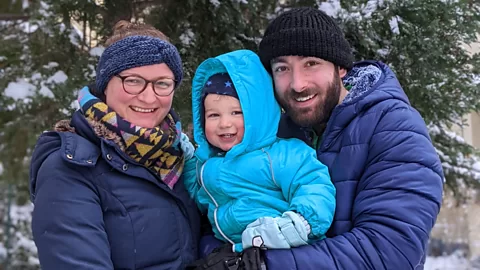
An intentional decision
These social pressures mean that, often, parents who are one-and-done by choice are "very conscientious" of their decision, says Dalton. "It's not just an auto-pilot approach."
Their reasons range from financial constraints to feeling like their family is already complete. But what many one-and-done-by-choice families have in common is that they feel, in contrast to what society often tells them, that being one and done isn't just best for them. It's best for their children, too.
While many people see a sibling as a 'gift' to a child, one-and-done parents point out that there is no guarantee children will get along. For some, it was their own experiences of growing up in larger families that made them consider having only one.
Fahey was the youngest of five. "The sibling rivalry was intense, to say the least. It really turned me off," she says. She sees introducing a new family member as a 'roll of the dice' with family dynamics. And, like many other one-and-done parents, she wants to make sure she and her husband can give their child everything they can.
One-and-done parents also worry that more children would divide their attention. "I see moms of two or more being torn in different directions, especially as kids get older," says Cristina Zaldivar, 44, of Miami, Florida. "Even at parent night at school, moms had to choose which child's teacher's presentations to sit through. I don't ever want to have to choose."
Because they have more patience and energy to draw on, many one-and-done families also say they feel like they can be more intentional parents. In Poland, Gosia Klimowicz, 39, grew up as the eldest of three. She says it's crucial to her that she can raise her family differently. "It is really important to me to have a calm and nurturing environment," she says. "And just to be able to control myself and my emotions, and make sure that I don't lose it" – aspects she feels like her overstretched parents couldn't manage.
Wanting to offer one child more also extends to other resources, including finances. Raising children today is expensive: one study showed raising two children in the US costs, on average, $310,605 (£255,369), not including college tuition. In the UK, one child is estimated to cost nearly £160,000 ($194,607) for a couple. In Australia, it costs almost AU$160,000 ($107,442, £88,307) or, by another estimate, nearly AU$550,000. Struggling to pay these bills, many families are falling further and further behind.
Indeed, compared to past generations, says Sandler, millennials are growing up forced to be more hard-nosed about life's challenges. "We haven't decided to make higher education affordable, or change our tax system so that there's a middle class again, or put a cap on inflated housing costs, or do any of the things that make a viable life possible," she says. "How on Earth do I bring a kid into that mix? And how on Earth do I then bring two kids into that mix?"
This has factored into Fahey's calculation, too. "If my son wants to do soccer and hockey and music, I want to be able to give him all of those things, not say, 'Oh no, your brother wants to do hockey, so you can only choose soccer'," says Fahey. "I want him to have all the opportunities to become who he wants to become, without any hindrance."
Some one-and-done parents also cite their concern over the kind of future their children will inherit."The planet is dying and there's not seemed to be as big of a push as needed to clean that up," says Fahey. "For those future generations, we're kind of leaving them to sort it out. I think it's really scary. There could be a struggle for resources – I don't want my kid to ever worry where he's going to get water."
Given that each new person is another consumer and another producer of carbon emissions, stopping at one seems to be the responsible, more selfless choice, says Berlin-based Vicky Allan, 33. (It’s worth noting not everyone agrees). "A long time ago, I heard that one of the best things you can do for the environment is to have one less kid, and this has always stuck in my mind," she says. "Bringing another human onto the planet is not a decision that should be taken lightly."

The happiness factor
Part of many one-and-done parents' contentment is the impact their decision has on other parts of their lives, such as careers, hobbies and interests. "There's the question of what you want an adulthood to look like," says Sandler. "Like, what does it take to go to the movies? What does it take to go out to dinner? What does it take to have adult friendships where you actually get to have an uninterrupted conversation?"
It is also, of course, potentially easier to maintain one's health. Pregnancy, labour and the postpartum period all carry risks, including for fathers. Particularly for women older than 35, those giving birth to a second or later child, rather than their first, are at increased risk of pregnancy complications like eclampsia, gestational hypertension and preterm labour.
For women in particular, careers, too, take a hit the more children they have. In Europe, each child is associated with an average drop in wages of 3.6% – although this varies from no wage disadvantage in Nordic countries to a 6% decline per child in Germany and the Netherlands. In the US, one study showed that, even accounting for differences in education or experience, the wage gaps between mothers of one or two children versus childless women are roughly the same, around 13%. But the decline falls to 17.5% at three children.
There are longer-term considerations, too. Dalton often hears that, even if it's hard to raise multiple children, you'll reap the benefits of a "full table" when they're adults. "It's rude to put that onto your children," she says, adding that she doesn't want her daughter to ever feel guilted by these kinds of expectations. And there are, she points out, no guarantees: "You could have another one and your children could hate each other. Or you could have another child that is disabled and may need care beyond 18 years old."
Having one child also makes it easier to be a better partner, believes Laura Bennett, 33, in Cornwall, England. As it is, she says, she's able to take time for herself, going to festivals or away for weekends with friends. As a result, she feels no resentment when her partner goes surfing or out for a pint. She's not sure how they'd achieve that balance with another.
All of this might be part of why research has showed that, while having one child is associated with a gain in happiness, having a second is associated with a drop in happiness for mothers. (That study found no effect of a second child on fathers). Other research has showed that while parents are happier in the lead-up and first year after having their first child, there are diminishing returns: the boost of happiness for the second child is half that of the first, and by the third, there's no boost at all. "Globally, happiness decreases with the number of children parents have," one analysis across 86 countries put it.
It also depends on culture. Parenthood usually has a neutral or negative effect on wellbeing for US and Canadian parents, while it's the opposite for families in Northwest Europe – a possible result of how social policies in Nordic countries help parents balance the stressors of family life.
The impact on partnerships isn't imagined, either. One analysis found that more than six in 10 men and five in 10 women experienced a significant change in their relationship satisfaction after their first child, usually for the worse. After a second child, it was even higher, particularly among men.
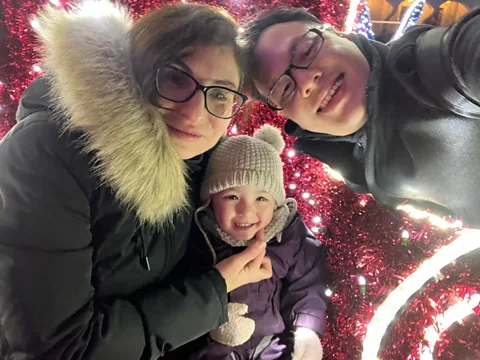
Living with your choice
No matter how carefully they've made their decisions, many one-and-done parents say they still experience pressure. Melissa Urban, CEO of the diet programme Whole30, is the mother of an only child – and the author of a book on boundaries. She's seen many parents in her Utah community receive unwanted comments, she says, she included scripts in the book for how to respond.
"Many people find the question uncomfortable, but just hint that it's unwelcomed. They'll laugh it off, or say, 'You know, we just aren't ready for another one.' But that's not setting a boundary, and it's likely to keep coming up," she says. Instead, she suggests having some phrases ready – like "Please don't ask, that's not something I want to talk about" – and practising them so they feel natural.
As only children become more common, these kinds of questions are likely to become rarer. Even so, for many families, becoming one-and-done remains a difficult decision – one to which they give a great deal of thought and, at times, may even doubt.
In Dalton’s case, it was seeing idealised images of siblings everywhere that began to make her question herself. By then, she’d been content in her decision for most of her daughter's life, and had even, in 2020, started a community supporting parents who felt the same, an Instagram page called @oneanddoneparenting.
She and her husband decided to do regular check-ins to figure out whether they really wanted a second child or were just internalising outside messages. At the end of every day, they'd ask each other if they would have liked to have had another child with them. Would they have preferred doing day-care drop-off, then school drop-off? Or going to the Science Museum with a four-year-old and a new-born? The answer, every evening, was no.
Dalton also took a step back from social media. "Truthfully, I thought I'd probably be away for, like, six months, because I thought it would take a really long time to make this decision," she says. Instead, within days she was asking herself, "What the heck was I thinking?", she says.
"Happy only child raising an only child", her @oneanddone bio now reads. She's happy, she says, for it to stay that way.
Source: BBC
















































